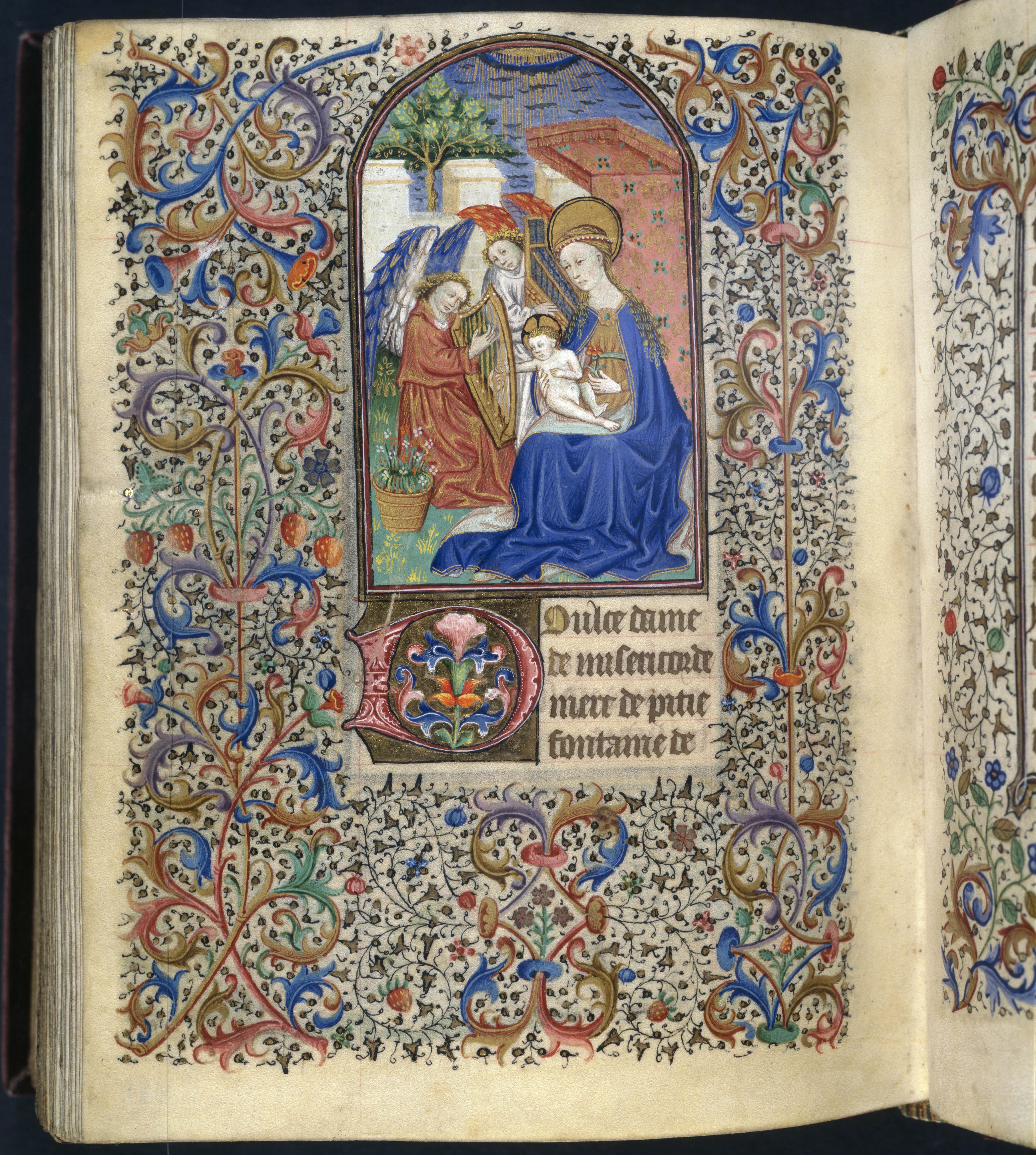
Title: ‘Fifteen Joys of the Virgin,’ in Horae (Book of Hours), Rylands Latin MS 162, fol. 181v
Place: Paris
Date: Mid-fifteenth century
Medium & technique: Hand-painted illumination, paint and gold on parchment
Dimensions: 172 x 135 mm
Themes: Monstrous – Marvellous
Collection: The John Rylands Library, (c) The University of Manchester
This page is from a manuscript book of hours (http://medievalist.net/hourstxt/home.htm), a devotional domestic prayer book popular from the thirteenth century onwards, written in Latin. (See ‘Office of the Dead,’ in Horae (Book of Hours).) The mise-en-page (page design) is typical for the opening page of prayers in books of hours from France in the mid-fifteenth century. In a miniature above the opening words of the prayer, the Virgin sits in a cloistered garden. Two angels, in hooded robes gathered at the waist, play music – one plays a harp and the other a portative organ. The fall of their garments and their modelled faces strongly suggest a human body and the wreaths of golden flowers in their hair and the attentive plucking at the harp’s strings – that Christ on the Virgin’s lap also tries to grasp – suggest human behaviours, but the fabulous feathered bird-wings held aloft from the angels’ backs resists reading these figures as human. Throughout the Middle Ages, scholars extensively debated the nature of angels. Unlike humans and animals, angels were not bounded by flesh yet their representation here gives them both human and animal (or avian) physical characteristics.
Anne Kirkham, University of Manchester
Further Reading:
David Keck, Angels and Angelology in the Middle Ages (Oxford: Oxford University Press, 1998).
Virginia Reinburg, French Books of Hours: Making an Archive of Prayer, c. 1400–1600 (Cambridge: Cambridge University Press, 2012).